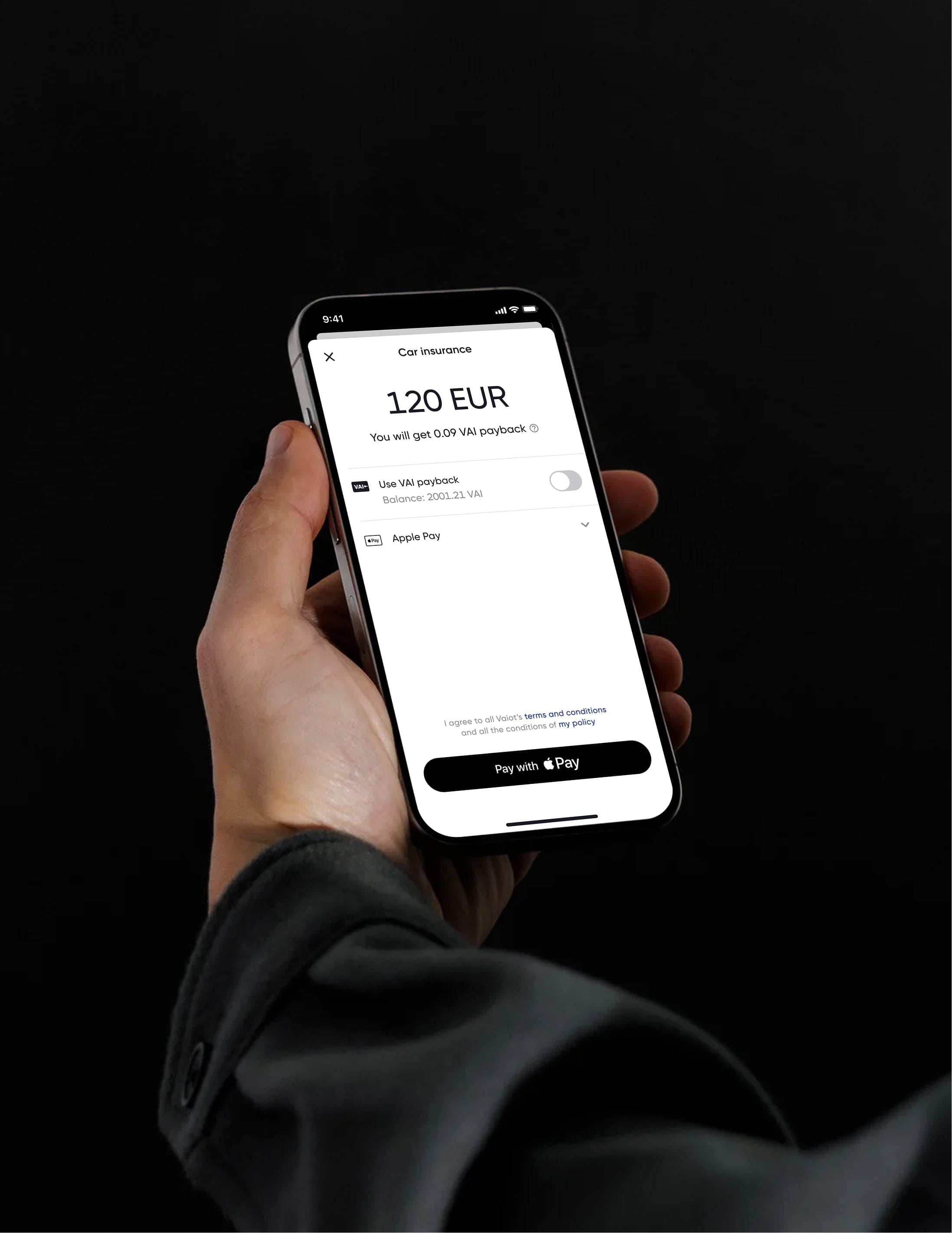

Blockchain and Artificial Intelligence (AI) are transformative technologies on their own, but when combined, they hold revolutionary potential. VAIOT leverages this synergy to redefine the future of human transactions through intelligent contracts—integrating the expertise of a lawyer, a blockchain developer, and an AI personal assistant into one seamless platform. The key objective of this partnership was to support VAIOT in securing the funding necessary to bring their vision to life. This required a strategic, proactive approach to design a compelling product prototype that would resonate with potential investors and later deliver that promise.
My role
As a Product Designer, I was responsible for:
Outcome

Dynamic technology landscape
The AI voice chat technology was being developed simultaneously with the app, meaning final capabilities were unknown during the design phase. It required close collaboration between design and engineering teams to ensure flexibility and readiness for multiple rapid iterations.
Complex use cases
The prototype needed to demonstrate multiple scenarios, showcasing VAIOT’s full range of intelligent contract functionalities
Investor-focused deliverables
The design had to not only be functional but also visually compelling to inspire investor confidence and support fundraising efforts.
The project began with a deep dive into VAIOT’s vision and objectives. It was crucial to align the application’s prototype with its strategic purpose, especially given its role in securing investor funding. To establish clarity, we conducted extensive workshops breaking down the essential components that would define the product’s value proposition. While VAIOT's team provided strong input on the target audience, we could only work with proto-personas, as the product was still in its conceptual phase and had no direct market equivalents. The absence of similar solutions meant we had to draw insights from existing chat-based applications, using them as reference points while keeping an open mind for innovation.
One of the biggest milestones was designing the chat interaction. Unlike traditional user interfaces, voice interaction presents a unique set of challenges. Our team dedicated time to studying the fundamentals of similar solutions through technical specifications, academic research, and industry literature. Understanding the technological feasibility of a voice assistant was just as important as defining its UX. We allocated significant time to technology research, ensuring that the interactions were seamless yet practical. Every design decision needed to balance innovation with feasibility, guaranteeing that the final product was not only visionary but also achievable. That phase ended with extensive technology research to understand the capabilities and limitations of emerging voice user interface (VUI) technologies.
To set a strong foundation for the user experience, we worked closely with VAIOT and the marketing team to establish an attractive yet functional brand identity. The process involved:
Through these explorations, we ensured that every touchpoint of the AI assistant felt intuitive and visually cohesive.


A critical part of the design process was visualizing the AI assistant. I explored different approaches to represent the assistant’s presence within the app, ranging from subtle visual cues to more dynamic, immersive interactions. These explorations led to multiple mood boards and concept iterations. Motion design played a key role, particularly in marketing communication. It was the defining element that would make the product stand out. To refine this experience, I developed over 30 iterations of the AI assistant’s core interaction, ensuring that it felt natural, engaging, and aligned with the product’s personality.


With the AI assistant’s core interaction established, we shifted focus to the chat experience itself. This phase involved multiple iterations, fine-tuning the interaction model to create a fluid, user-friendly conversation flow. To bring the prototype to life, we integrated voice-over elements. Working closely with a professional voice-over team, we designed a compelling marketing scenario that fully showcased the product’s vision. The result was a high-impact prototype that not only demonstrated the assistant’s potential but also provided a strong narrative for investors and stakeholders.


After successfully securing the financing round, we expanded our focus to other critical areas of the product, including payment flows, data management, and supporting systems that, while not central to communicating the initial vision, were essential for delivering a complete experience. All interfaces continued to evolve through iterative cycles, incorporating insights gathered from ongoing user testing.


This project underscored how thoughtful design can drive business outcomes - not just through user experience but by directly influencing a company’s growth trajectory.
The power of tangible concepts
In complex, innovative domains like blockchain and AI, prototypes are invaluable. They turn abstract ideas into tangible products that inspire confidence and clarity for stakeholders
Design for adaptability
Working alongside rapidly evolving technologies requires flexible design processes, close collaboration with engineering, and a readiness to pivot based on new technical insights
Brand as a strategic asset
Establishing a strong brand identity early on helped unify the product vision, making it easier to communicate value to both users and investors..